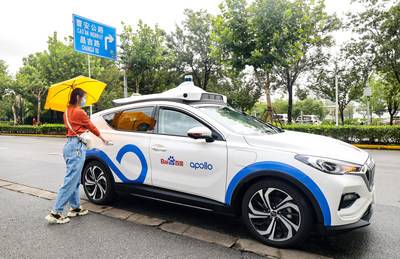
Baidu announced that public testing of Baidu Apollo Go will begin in Shanghai, making it the fifth city where passengers will be able to test the robotaxi mobile platform. Baidu is the sole provider of this service in the three first-tier Chinese cities of Beijing, Guangzhou, and Shanghai.
The Shanghai operation will include 150 stations that will be opened in stages across the city to provide users with convenient access to residential areas, commercial areas, offices, and public transportation. Every day from 9:30 a.m. to 11:00 p.m., passengers can use the service.
This announcement follows another major milestone for Baidu Apollo: the expansion of Apollo Go to Beijing’s Tongzhou District, where residents and visitors will be able to travel in an autonomous vehicle. The first batch of routes in Tongzhou will connect 22 stations over a distance of more than 31 miles, allowing for more than 100 trips per day.
China Autonomous vehicles market boom
According to a recent IHS Markit report, the future market potential for autonomous vehicles will be based on business models such as robotaxis, which are expected to account for more than 60% of China’s future mobility sharing market by 2030, with a market value of more than $201 billion. According to IHS, this segment of the market will be dominated by two to three robotaxi service providers, with the leading provider accounting for more than 40% of the market share.
China’s autonomous driving industry has recently entered a new stage of development, characterized by large-scale application trials. According to Wei Dong, vice president and chief safety operation officer of Baidu’s Intelligent Driving Group, this large-scale implementation requires three steps: regionalization, commercialization, and verification via unmanned on-road operation. Baidu has already made strides in autonomous ride-hailing, achieving a 60 percent reduction in cost per mile with the release of the 5th generation robotaxi vehicle in June. Baidu Apollo’s launch in Shanghai continues to deliver on China’s vision of developing a world-leading autonomous driving market.
Apollo L4 autonomous driving had accumulated 8.7 million test miles as of the end of August 2021. Following the Shanghai launch, Baidu intends to expand Apollo Go services to 25 additional cities over the next three years, making autonomous driving a reality for 3 million Chinese people.


